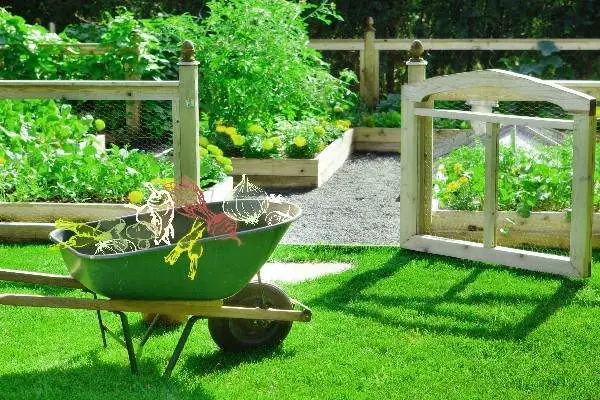As the weather heats up and the sun shines bright, it’s time to start thinking about your summer garden. Whether you’re an experienced gardener or a beginner, growing summer crops can be a rewarding and fulfilling experience.
In this article, we’ll explore the best summer crops to grow, how to care for them, and how to get the most out of your garden. Let’s dive in!
What are Summer Crops?
Summer crops are those that thrive in the heat and sunshine of the summer months. They are typically planted in the late spring or early summer and harvested in the late summer or early fall. These crops include vegetables, fruits, and herbs that are well-suited to warm temperatures and abundant sunlight.

Why Grow Summer Crops?
There are many reasons to grow summer crops. For one, they are often easy to grow and require minimal maintenance. Additionally, summer crops are typically more flavorful and nutritious than their winter counterparts. Growing your own summer crops can also be a fun and rewarding way to connect with nature and enjoy the outdoors.
Best Summer Crops to Grow
- Tomatoes – Tomatoes are one of the most popular summer crops, and for good reason. They are easy to grow, taste great, and are extremely versatile. Tomatoes come in many varieties, including cherry, heirloom, and beefsteak.
- Peppers – Peppers are another great summer crop that can add a spicy kick to any dish. They come in a variety of shapes and sizes, including bell peppers, jalapenos, and habaneros.
- Cucumbers – Cucumbers are a refreshing summer crop that can be eaten raw or pickled. They are easy to grow and can be trained to climb trellises or fences.
- Zucchini – Zucchini is a versatile summer squash that can be grilled, sautéed, or baked. It is also very easy to grow and can produce a large yield.
- Basil – Basil is a fragrant herb that can be used in a variety of dishes, from salads to sauces. It grows well in warm weather and can be grown in pots or in the ground.
How to Grow Summer Crops
Growing summer crops is relatively easy, but there are a few things to keep in mind. Here are some tips for growing the best summer crops:
- Choose the right location – Most summer crops require full sun and well-draining soil. Choose a location that gets at least 6 hours of direct sunlight per day and has good drainage.
- Prepare the soil – Before planting, amend your soil with compost or other organic matter. This will help improve soil structure and fertility.
- Water regularly – Summer crops require regular watering, especially during periods of hot and dry weather. Water deeply once a week or more often if needed.
- Fertilize – Use a balanced fertilizer once a month to keep your summer crops healthy and productive.
Harvesting and Storage
Harvesting your summer crops is one of the most rewarding parts of gardening. Most summer crops can be harvested when they are ripe and ready to eat. Here are some tips for harvesting and storing your summer crops:
- Harvest in the morning – Harvest your summer crops in the morning when the plants are cool and hydrated. This will help preserve the flavor and quality of your crops.
- Store properly – Store your summer crops in a cool, dry place. Some crops, such as tomatoes and peppers, can be stored at room temperature, while others, such as cucumbers and zucchini, should be stored in the refrigerator.
How to Get the Most Out of Your Summer Garden
Growing summer crops can be a great way to enjoy fresh, flavorful produce all season long. Here are some tips for getting the most out of your summer garden:
- Companion planting – Planting certain crops together can help improve soil fertility, control pests, and increase yields. For example, planting basil near tomatoes can help improve tomato flavor and repel pests.
- Succession planting – Planting new crops every few weeks can help extend your harvest season and ensure a steady supply of fresh produce.
- Crop rotation – Rotating your crops each year can help reduce soil-borne diseases and pests and improve soil fertility.
- Mulching – Mulching your garden can help conserve water, suppress weeds, and regulate soil temperature.
Conclusion
Growing summer crops can be a fun and rewarding way to enjoy fresh, healthy produce all season long. With the right care and attention, you can grow a bountiful garden that will provide you with plenty of delicious fruits, vegetables, and herbs. Whether you’re an experienced gardener or just starting out, now is the perfect time to get started.
FAQs
What are some other summer crops to consider growing?
Some other summer crops to consider growing include eggplant, okra, beans, and melons.
Do I need a lot of space to grow summer crops?
Not necessarily. Many summer crops can be grown in containers or raised beds, which are great options for small spaces.
How often should I fertilize my summer crops?
Most summer crops will benefit from monthly fertilization, but it’s important to follow the specific fertilization guidelines for each crop.
Can I still plant summer crops if it’s already summer?
Yes, you can still plant summer crops in the early summer, but it’s important to choose varieties that have a short growing season or can tolerate heat.
What’s the best way to control pests in my summer garden?
There are many natural pest control methods that can be effective, such as companion planting, using beneficial insects, and using organic pesticides.









